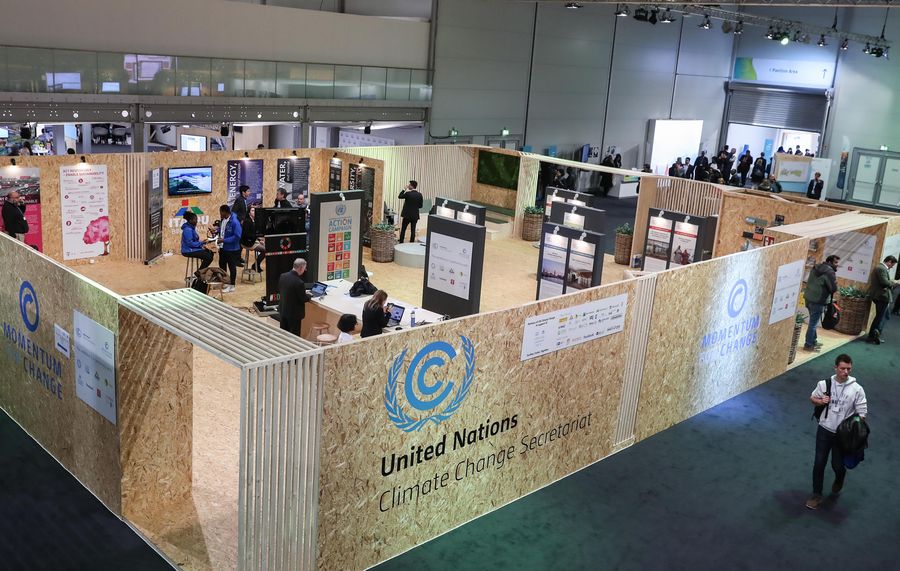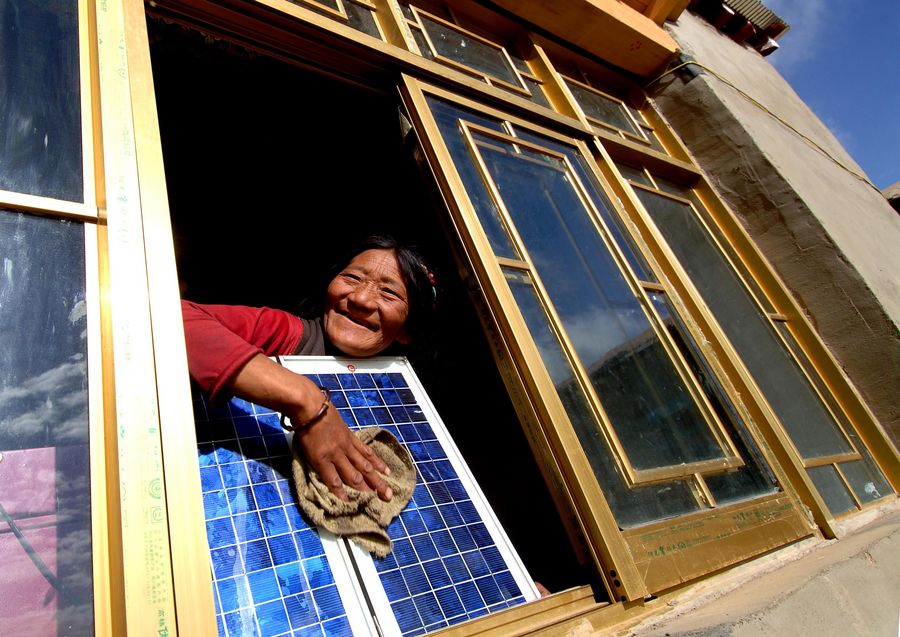
Achim Steiner, administrator of United Nations Development Program (UNDP), addresses the opening ceremony of the International Forum on Reform and Opening Up and Poverty Reduction in China held in Beijing, capital of China, on Nov. 1, 2018. (Xinhua/Zhai Jianlan)
Wealthier countries must invest in poorer countries' capacity to help them leapfrog into a low-carbon economy, said UNDP chief Achim Steiner, noting international climate financing is a viable strategy for mobilizing the world's capital to invest in the transitions.
by Xinhua writer Xu Xiaolei
UNTIED NATIONS, Sept. 20 (Xinhua) -- Unless the issue of financing for climate effort can be well addressed, countries' ability to follow their national climate strategies will be held back, a United Nation development chief told Xinhua in a recent interview.
In the run-up to the Climate Action Summit set for Monday in New York, UN Development Programme (UNDP) Administrator Achim Steiner expects climate investment to "get a lot of attention" and financing announcements to be made at the meeting convened by UN Secretary-General Antonio Guterres.
"Whether you are in business, or you're a government, or you're a mayor in the city, or you are a consumer who wants to change your footprint in terms of carbon emissions, you first have to invest a little bit," Steiner said, stressing the importance of climate financing.
"If you look at the change in our energy systems, very significant amounts of investments are needed," he added.
The financing for action on climate change has to become a priority of the finance minister of all governments, as "macroeconomic perspective is fundamental to making government budgets more effective and deliver multiple benefits in the way they allocate their sectors." the UNDP chief said.
Steiner emphasized the need to leverage the mobilization and the attraction of private sector investment, calling on governments "to create the incentives."
Wealthier countries must invest in poorer countries' capacity to help them leapfrog into a low-carbon economy, he said, noting international climate financing is a viable strategy for mobilizing the world's capital to invest in the transitions.

Photo taken on Nov. 16, 2017 shows a general view of the pavilion of the Secretariat of the United Nations Framework Convention on Climate Change (UNFCCC) in "Bonn Zone" of UN climate talks in Bonn, Germany. (Xinhua/Shan Yuqi)
In this regard, he said, the Green Climate Fund, a financial mechanism under the UN Framework Convention on Climate Change (UNFCCC), is beginning but "not yet at a scale that is commensurate with both the needs and the promises."
Steiner told Xinhua that the UNDP and the UNFCCC on Wednesday jointly released a report concerning national climate actions in terms of the commitments made in Paris in 2015.
"The Heat is On" report showed 75 nations plan to enhance their mitigation and/or adaption efforts, and 14 nations have no plans to revise their Nationally Determined Contributions (NDC), while for 71 nations, it is unclear how or whether the NDCs will be revised.
It also showed developing countries are currently the front-runners in preparations to revise plans for combatting the climate crisis over the next decade.
Quite a number of countries will step up with the responsibility to lead the transition to a low-carbon economy, which the world embarked on with the Paris Agreement, according to the UN development chief.
He voiced hope that the countries that "are still thinking how to do this will get a lot of encouragement from what happens."

A tourist charges up an electric car at a charging point in Tengtou Village in Fenghua District in Ningbo City, east China's Zhejiang Province, April 22, 2018. (Xinhua/Yin Gang)
Meanwhile, China in many respects has been at the forefront of the green technology frontier, Steiner said. For instance, "in China, more electric vehicles are sold today than in the entire rest of the world. So we can see that a significant number of commitments made in Paris are beginning to change our economy."
As "China can be a significant multiplier and accelerator of transition towards cleaner energy infrastructure, more efficient buildings" in the developing world, the UNDP is working closely with the Asian country, he said.
China has been developing renewable energy technologies and thus bringing prices down so that many other countries can afford to buy these technologies, he added.
Over the next 10 to 12 years, the UNDP will commit itself to helping 100 million more people gain access to renewable energy, restore 100 million hectares of degraded land, and help countries to conserve a further 500 million hectares of land.

A woman cleans a solar panel at her new house thanks to the "Guangming" Project, which was drived by the Chinese government in 1997 to solve the power supply of no-electricity regions by developing new energy electricity generation, in southwest China's Tibet Autonomous Region, Oct. 12, 2006. (Xinhua)
On Thursday, the UNDP announced it will support 100 developing countries over the next 12 months in reviewing their national climate strategies.
In addition, the UN body is working as part of the NDC partnership, which supports many countries in a consortium, to significantly raise the funding available to countries to strengthen climate efforts.
The UNDP also announced the commitment as an organization to reducing its own carbon emissions by 25 percent in the next six years and by 50 percent by 2030.■



